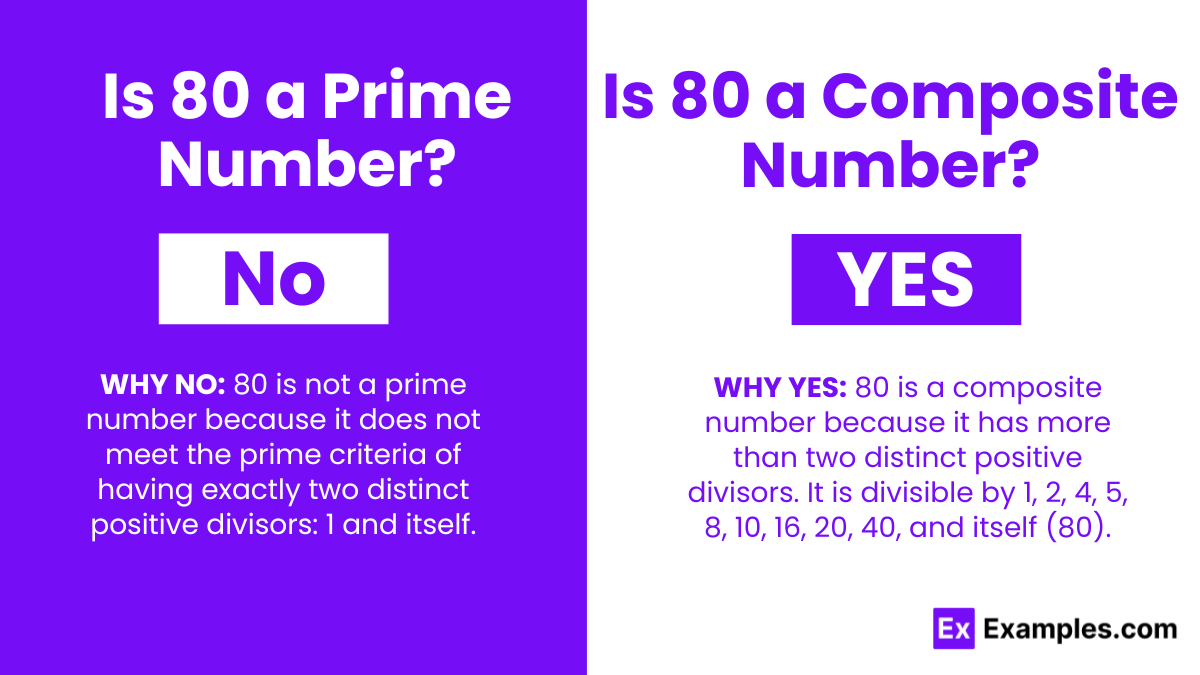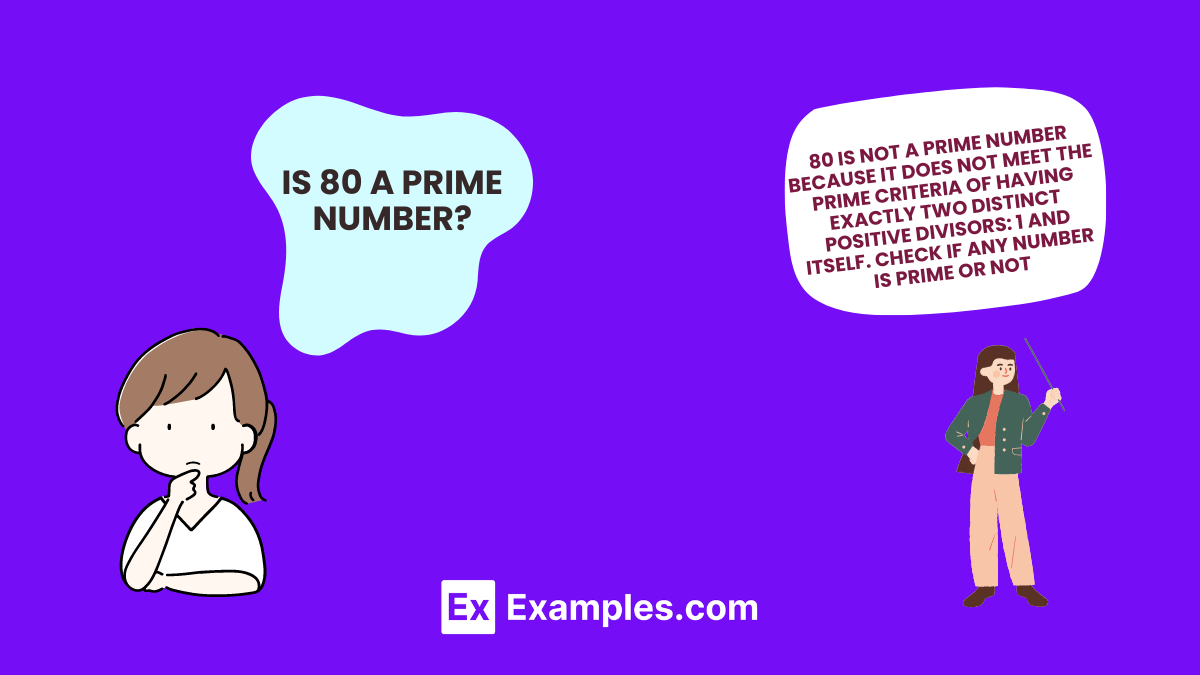Is 80 a prime number or a composite number?
Prime
Composite
Neither
Both

Why No: 80 is not a prime number because it does not meet the prime criteria of having exactly two distinct positive divisors: 1 and itself. Check if any number is prime or not

Why Yes: 80 is a composite number because it has more than two distinct positive divisors. It is divisible by 1, 2, 4, 5, 8, 10, 16, 20, 40, and itself (80).
| Property | Answer |
|---|---|
| Is 80 a prime number? | No |
| Is 80 a composite number? | Yes |
| Is 80 a perfect square? | No |
| Factors of 80 | 1, 2, 4, 5, 8, 10, 16, 20, 40, 80 |
| Multiples of 80 | 80, 160, 240, 320, 400, 480, 560, 640, 720, 800 |
| Cube Root of 80 | Approximately 4.34 |
| Square of 80 | 6400 |
| Square Root of 80 | Approximately 8.944 |
| Is 80 a Perfect Cube? | No |
| Is 80 an Irrational number | No |
| Is 80 a Rational number | Yes |
| Is 80 a Real number | Yes |
| Is 80 an Integer | Yes |
| Is 80 a Natural number | Yes |
| Is 80 a Whole number | Yes |
| Is 80 an Even or odd number | Yes (80 is an even number) |
| Is 80 an Ordinal number | Yes |
| Is 80 a Complex number | Yes (as all real numbers are also complex numbers) |
The factors of 80 are 1, 2, 4, 5, 8, 10, 16, 20, 40, and 80. Unlike a prime number, which is only divisible by 1 and itself, 80 is divisible by multiple numbers, demonstrating it has more than two factors. This clarification affirms that 80 is a composite number, not a prime number.
80 is categorized as a composite number because it has more than two distinct positive divisors: 1, 2, 4, 5, 8, 10, 16, 20, 40, and itself.
80, by virtue of being a composite number, stands apart in mathematics in comparison to prime numbers. Its divisibility by multiple numbers other than just 1 and itself highlights its composite identity. The characteristics of 80, such as being even, composite, and a natural number, render it a subject of interest across different mathematical discussions.
The nearest prime numbers to 80 are 79 and 83. 79 is the closest prime number less than 80, and 83 is the closest prime number greater than 80. These prime numbers bracket 80, situating it within a mathematical context of both composite and prime number discussions.
Text prompt
Add Tone
10 Examples of Public speaking
20 Examples of Gas lighting
Is 80 a prime number or a composite number?
Prime
Composite
Neither
Both
Which of the following statements is correct about the number 80?
It is a prime number because it has no divisors other than 1 and 80.
It is a composite number because it has more than two divisors.
It is both prime and composite.
It is neither prime nor composite.
How would you classify the number 80?
Prime
Composite
Both prime and composite
Neither prime nor composite
Determine if the number 80 is prime or composite.
Prime
Composite
Neither
Both
Is 80 a prime or composite number?
Prime
Composite
Neither
Both
Why is 80 classified as a composite number?
Because it has only one divisor.
Because it has exactly two divisors.
Because it has more than two divisors.
Because it has no divisors.
What property makes 80 a composite number?
It has no divisors.
It has exactly one divisor.
It has exactly two divisors.
It has more than two divisors.
Which of the following best describes the number 80?
Prime
Composite
Both
Neither
Can 80 be classified as a prime number?
Yes, because it has only two divisors.
No, because it has more than two divisors.
Yes, because it is an even number.
No, because it is an odd number.
Is 80 a composite number?
Yes, because it is even.
Yes, because it has more than two divisors.
No, because it has only two divisors.
No, because it is an odd number.
Before you leave, take our quick quiz to enhance your learning!

